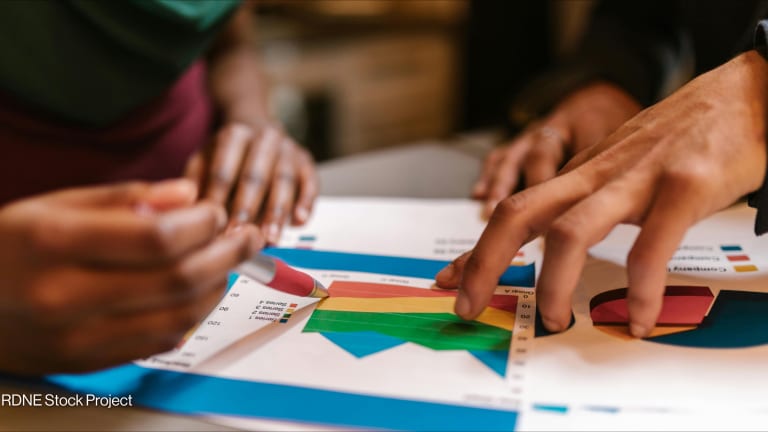Can a new wave of feminist funding change the way development is done?
Gender-smart investing can fix funding gaps and spur gender-equitable social change. The development community needs more of it to break the current system of funding for women's rights, experts tell Devex.
VANCOUVER — Nearly $600 million was committed to women and girls last week in three new announcements at the Women Deliver conference in Vancouver. The money — mobilized from government, philanthropy, and private sector — will be a powerful force for women’s rights and sexual and reproductive health, but it’s just the beginning of a growing wave of feminist funding that experts and advocates hope can help transform the way development is financed. Launched last Monday with a 300 million Canadian dollar ($226.3 million) commitment from the government of Canada and C$100 million from philanthropic donors, the Equality Fund will combine international feminist grant-making with an investment arm to back on-the-ground initiatives in middle- and low-income countries, such as countering violence against women and enhancing women’s economic security and leadership. It aims to solve the pervasive issue that so many local women’s rights organizations face: project funding that dries up in just a few years. The investment space is underutilized as a means of generating returns and putting that money back into the hands of women's organizations and movements that are too often kept small due to unpredictable funding, said Jess Tomlin, president and CEO of the MATCH International Women’s Fund, a member of the 11-organization coalition leading the Equality Fund. “It needs to be predictable. It needs to be flexible so that these organizations have the agency to navigate the complexity of some of these really deep political issues, whether that’s harmful laws or traditions or a rollback of abortion rights,” Tomlin told Devex. “What we're really looking to is to move the needle.” --— Diana de Castro, chief alliance officer, Pro Mujer The fund will deploy capital to businesses that promote gender equity or benefit women through products and services, and it was designed around an understanding of the universality of women’s rights, explained Theo Sowa, head of the African Women’s Development Fund, which will head up the fund’s programming. The collaboration will include funding in Canada as well as internationally in a move that helps “break down the silos that people think in,” Sowa said. Breaking silos Julia Anderson, acting executive director of the Canadian Partnership for Women and Children’s Health, pointed to similar silo-busting collaboration that went into advocacy around Canada’s Thrive Agenda, a policy initiative for Canada's post-2020 investments in women and children’s health. Last week, the Canadian government announced an increase in financing for gender equality to C$1.4 billion Canadian dollars from C$1.1 billion. Within that, Canada pledged C$700 million annually — up from its current contribution of C$400 million — to women and girls’ sexual and reproductive health and rights. It wasn’t just a financial win, Anderson told Devex. There’s a story behind the announcement of sector partners who saw beyond their own agendas to advocate for the C$1.4 billion needed for better health outcomes for women and girls around the world. “Let’s come together and not think about the various pieces of the pie that we’re all looking for,” Anderson told Devex. “Let’s instead look at impact and outcome and what we want to achieve. And that’s what we did.” The new funding is not earmarked for a certain institution, and calls for proposals will roll out slowly. There is a lot of advocacy to be done to ensure the money gets where it needs to go, but it means the government can now look to a broad array of funding options, through multilateral efforts, civil society organizations, or bilateral agreements, Anderson said. “It’s a novel approach to bring together broad sector interest and negotiate and ask of a donor to invest in a full sector, and now we feel there’s enough room in that bucket to actually make a large and more substantive impact in the global health space in a way that’s rights-based,” Anderson said. Pushing gender lens investing further When it comes to gender investing, whether it’s grant and philanthropic capital coming together with those that are seeking market returns, each player has an important role, said Diana de Castro, chief alliance officer for women’s development organization Pro Mujer. Pro Mujer has been a gender investor without calling itself that for 30 years, de Castro explained, and has witnessed a growing emphasis on collaboration to tailor to financial needs of women-led groups. Canadian investment fund manager Deetken Impact teamed up with Pro Mujer to launch the Ilu Women’s Empowerment Fund, with $25 million already committed. The fund will invest in a diverse portfolio of high impact businesses in Latin America and the Caribbean that promote women in leadership in governance and workplace equity. Similar to the Equality Fund, Ilu integrates gender considerations throughout the full investment process, including the implementation of a gender smart evaluation framework that looks into whether an organization is women-led and women-served. It asks questions such as: Is the organization being an advocate? Is it making its stance on gender public? What does the leadership and board look like? How is it developing products to meet women and girls’ needs? The company doesn’t have to be practicing on all these fronts, de Castro clarified. “What we're really looking to is to move the needle. So even if an organization may not have gender on their radar, but they're committed to it, those are the things that we'll be looking at and trying to bring them along the spectrum.” But despite the traction of gender-smart investing, “it's still such a small percentage of the capital that's out there,” de Castro said, adding that mainstream investors still may not have heard yet of gender smart investing. She’d also like to raise awareness of how pervasive unconscious gender bias is “so that people don't come up and say anymore:‘There really aren't women entrepreneurs to invest in.’ We know that that's not the case. We've been investing in women. We see these entrepreneurs, they're out there. Maybe they're not reaching out because they don't feel invited.” AWDF’s Sowa sees a bigger role for feminist funding to break the way development is currently funded — and to break ground for a new generation of feminist economists. “We actually need a generation of young women [to] go into this world and truly understand what it is and, therefore really understand the levers of change within the system,” Sowa said. She’s optimistic about the promise of the Equality Fund — which seeks to mobilize more than $1 billion in assets that work in support of gender equality over the next 15 years — but she doesn’t want its launch to deter others from thinking about how to fund women’s rights. “It's really important that people don't think that this means that funding for women's rights is finished,” Sowa said. I think what we need is to have another five to 10 ideas like this. They don't all have to be in the same model. But they do all have to be more ambitious than we are being now.”
VANCOUVER — Nearly $600 million was committed to women and girls last week in three new announcements at the Women Deliver conference in Vancouver. The money — mobilized from government, philanthropy, and private sector — will be a powerful force for women’s rights and sexual and reproductive health, but it’s just the beginning of a growing wave of feminist funding that experts and advocates hope can help transform the way development is financed.
Launched last Monday with a 300 million Canadian dollar ($226.3 million) commitment from the government of Canada and C$100 million from philanthropic donors, the Equality Fund will combine international feminist grant-making with an investment arm to back on-the-ground initiatives in middle- and low-income countries, such as countering violence against women and enhancing women’s economic security and leadership.
It aims to solve the pervasive issue that so many local women’s rights organizations face: project funding that dries up in just a few years.
This story is forDevex Promembers
Unlock this story now with a 15-day free trial of Devex Pro.
With a Devex Pro subscription you'll get access to deeper analysis and exclusive insights from our reporters and analysts.
Start my free trialRequest a group subscription Printing articles to share with others is a breach of our terms and conditions and copyright policy. Please use the sharing options on the left side of the article. Devex Pro members may share up to 10 articles per month using the Pro share tool ( ).
Kelli Rogers has worked as an Associate Editor and Southeast Asia Correspondent for Devex, with a particular focus on gender. Prior to that, she reported on social and environmental issues from Nairobi, Kenya. Kelli holds a bachelor’s degree in journalism from the University of Missouri, and has reported from more than 20 countries.








